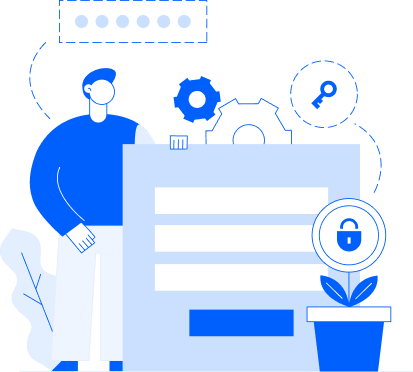Top HR Challenges in 2025
and How to Solve Them
The Shifting Landscape of HR in 2025
As we enter 2025, the role of human resources continues to evolve at an unprecedented pace. The traditional responsibilities of HR departments—recruitment, compliance, benefits, and performance management—remain essential, but they are now being redefined by a rapidly changing work environment. The workplace has transformed into a hybrid of in-person and remote operations, employees have higher expectations for engagement and well-being, and organizations are under pressure to stay agile, ethical, and inclusive. For HR professionals, 2025 brings both a set of unique challenges and an opportunity to lead transformative change. Understanding these challenges and implementing strategic solutions is key to building a future-ready workforce. This blog helps you understand the key HR challenges in 2025. It also suggests strategies to address those challenges.
Managing Hybrid Workforces Effectively
One of the most significant challenges for HR teams in 2025 is managing a hybrid workforce. After several years of global shifts caused by the COVID-19 pandemic, hybrid work has become the norm for many organizations. While flexibility has become a sought-after benefit, it also introduces new complexities in management and collaboration. HR leaders are now tasked with maintaining equity between in-office and remote employees, promoting consistent communication, and ensuring that organizational culture does not suffer across digital boundaries. The lack of physical presence can sometimes lead to isolation, disengagement, and communication silos. To address these challenges, companies must adopt clear hybrid work policies that define expectations and communication standards. Leveraging digital collaboration platforms and integrated HRMS solutions such as Synclo can help bridge the gap between remote and office-based employees by offering real-time updates, centralized information, and seamless task management.
Supporting Mental Health and Well-Being
Another pressing issue in 2025 is the growing concern for employee mental health and well-being. The boundaries between work and personal life have blurred, leading to increased stress and burnout among employees. As more professionals continue to work remotely or in high-demand environments, HR departments must proactively support mental wellness in the workplace. Employee well-being is no longer a fringe benefit; it is a critical factor in performance and retention. Companies that fail to provide adequate mental health support risk high turnover rates and a disengaged workforce. HR leaders must integrate wellness initiatives into company culture, from offering mental health days to providing access to counseling services. It is also important to create an environment where employees feel safe discussing their well-being without stigma or fear of retaliation. Leadership training in mental health awareness can further equip managers to identify signs of stress and provide appropriate support.
Key takeways
- Mental health is now a core component of employee performance and retention, not just a perk.
- HR teams must implement wellness programs, counseling access, and mental health days to reduce burnout.
- Creating a stigma-free environment and training leaders in mental health awareness is essential for long-term support.

Competing for and Retaining Top Talent
Attracting and retaining top talent remains a consistent challenge, but in 2025, it has taken on new dimensions. Employees, especially younger generations like Millennials and Gen Z, are increasingly selective about where they work. They are looking for employers who align with their values, provide meaningful work, and offer growth opportunities. Competitive salaries and benefits are still important, but they are no longer sufficient. Organizations must focus on building strong employer brands that highlight purpose, inclusivity, and professional development. The competition for skilled professionals, especially in fields such as technology, data science, and digital marketing, is fierce. HR teams must invest in thoughtful recruitment strategies that reflect company culture and values while also offering candidates a clear path for advancement. Internal mobility programs, mentorship opportunities, and continuous learning platforms can enhance employee loyalty and reduce attrition.
The Need for Continuous Upskilling and Reskilling
In the same vein, the need for upskilling and reskilling is more critical than ever before. The rapid pace of technological innovation is rendering certain job roles obsolete while creating new ones at breakneck speed. Artificial intelligence, machine learning, and automation are reshaping the workforce, and employees must evolve to keep pace. In this environment, HR professionals must ensure that the workforce remains competitive and future-ready. Traditional one-time training models are no longer effective. Instead, learning must become an ongoing, personalized process integrated into everyday work. HR leaders can champion continuous learning by collaborating with educational platforms and leveraging integrated learning management systems. Providing employees with access to bite-sized, on-demand training modules allows them to acquire new skills without disrupting productivity. Furthermore, fostering a culture that celebrates learning and development encourages employees to take initiative in their growth.
Using HR Data for Smarter Decision-Making
One of the defining characteristics of HR in 2025 is the reliance on data-driven decision-making. While HR has historically been viewed as a people-focused function, today’s environment demands the same level of analytical rigor applied in finance, marketing, and operations. HR teams are now expected to measure employee engagement, turnover rates, hiring efficiency, and more—then use that data to inform strategy. However, many HR departments still struggle with fragmented systems, inconsistent data collection, and manual reporting. To make meaningful progress, organizations must invest in integrated HRMS platforms like Synclo that centralize data and provide actionable insights. With the right tools, HR can move from reactive to predictive, identifying trends before they escalate and making evidence-based decisions that align with organizational goals. Dashboards, analytics reports, and AI-driven recommendations are essential tools for today’s HR leader.
Key takeways
- HR decision-making in 2025 must be powered by real-time, centralized data and analytics.
- Integrated platforms like Synclo help eliminate data silos and support evidence-based strategies.
- Predictive insights and AI tools enable HR to be proactive, not just reactive.

Meeting Global Compliance and Regulatory Demands
Generational diversity is another layer of complexity in the modern workplace. In 2025, companies are home to four or even five generations working side by side—from Baby Boomers and Gen X to Millennials and Gen Z. Each group brings different communication styles, values, and expectations to the table. While this diversity can enrich workplace culture, it can also lead to misunderstandings and friction. HR’s role is to bridge generational gaps through education, empathy, and thoughtful program design. Facilitating cross-generational mentorships, offering flexible communication tools, and personalizing rewards and recognition can help foster mutual respect. Recognizing and celebrating these differences as strengths rather than challenges can lead to a more dynamic and collaborative workplace.
Managing a Multigenerational Workforce
Another major challenge HR faces in 2025 is staying compliant with constantly changing labor laws and regulations. With the rise of remote and international workforces, companies are now operating across multiple legal jurisdictions. Each region may have different rules regarding employee classification, taxation, health and safety, and data protection. HR teams are responsible for navigating this complex landscape while avoiding legal risk. Failure to comply can result in hefty fines, lawsuits, and damage to the organization’s reputation. HR professionals must stay informed about changes in employment law and maintain meticulous records. Automating compliance processes through a robust HRMS can minimize errors and reduce administrative burden. Regular audits, policy updates, and legal consultations ensure that organizations remain in good standing while maintaining employee trust.
As HR enters 2025, leaders face challenges like managing hybrid workforces, supporting mental health, ensuring DEI, and using data for smarter decisions. Success lies in embracing agility, technology, and a people-first mindset. Synclo stands out as the all-in-one HRMS that equips HR teams to adapt, lead, and thrive—bridging gaps, streamlining compliance, enhancing employee experiences, and turning HR into a future-ready strategic powerhouse.
Advancing Diversity, Equity, and Inclusion (DEI)
Inclusion and diversity continue to be at the forefront of HR discussions in 2025. More than just a moral imperative, diversity, equity, and inclusion (DEI) are key drivers of innovation, engagement, and performance. However, many organizations still struggle to move beyond surface-level initiatives. Tokenism, lack of accountability, and insufficient measurement tools can hinder genuine progress. For HR teams to be effective DEI leaders, they must embed inclusivity into every aspect of the employee experience—from recruitment and onboarding to performance reviews and leadership development. This involves setting measurable diversity goals, conducting bias training, and creating safe spaces for dialogue. Transparent reporting on DEI progress can build trust among employees and signal to external stakeholders that the organization takes inclusivity seriously. Partnering with community organizations and offering equitable opportunities for advancement also helps cultivate a workplace where all individuals can thrive.
Key Takeaways:
- DEI must be woven into the entire employee lifecycle—not treated as a standalone initiative.
- HR should implement measurable goals, regular bias training, and transparent DEI reporting.
- Inclusive partnerships and equitable growth opportunities build trust and lasting change.

Designing Exceptional Employee Experiences
Equally important in 2025 is enhancing the overall employee experience. In a competitive job market, how employees perceive their journey within a company—from recruitment to exit—can significantly impact retention and reputation. A poor onboarding process, for instance, can leave new hires disengaged from day one. Conversely, a smooth and welcoming experience can create lasting loyalty. HR professionals must take a design-thinking approach to the employee lifecycle, mapping out each touchpoint and identifying areas for improvement. Technology plays a vital role in creating frictionless experiences. Tools that automate routine HR tasks, facilitate real-time feedback, and provide easy access to resources empower employees and reduce frustration. When employees feel seen, heard, and supported, their productivity and satisfaction naturally rise.
Preparing for the Future of Work
Finally, HR must prepare for the uncertainties of the future. The world of work is in a state of continuous transformation, and HR leaders must adopt an agile mindset to navigate it. Whether it’s the growing influence of the gig economy, the emergence of AI in recruitment, or the impact of climate change on business operations, adaptability is the most valuable trait an HR department can cultivate. Scenario planning, strategic workforce forecasting, and investing in future-ready skills ensure that the organization is not just reacting to change but leading it. HR is no longer a back-office function—it is a strategic partner in shaping the organization’s vision and guiding it through complexity with resilience and foresight.
Embracing the Future with Confidence
In conclusion, the HR challenges of 2025 are complex, interconnected, and evolving. But with each challenge comes an opportunity for innovation and growth. By embracing technology, prioritizing people, and aligning HR strategies with organizational goals, companies can turn these challenges into strengths. Platforms like Synclo are designed to empower HR professionals with the tools they need to meet these demands head-on. In a world where talent is the ultimate competitive advantage, strategic and responsive HR leadership is not just important—it’s essential.
Why Synclo Is the HRMS Built for 2025 and Beyond
As the HR landscape continues to evolve, organizations need a platform that is agile, intelligent, and deeply human-centric. Synclo rises to meet every challenge discussed—whether it’s managing hybrid teams, supporting mental health, enhancing DEI, driving data-informed decisions, or ensuring compliance in a global workforce. With its all-in-one HRMS suite, Synclo offers seamless integration of recruitment, performance management, learning, analytics, and compliance tools—allowing HR teams to lead with strategy and empathy. In a time when precision, personalization, and agility define successful HR, Synclo isn’t just a tool—it’s your partner in building a resilient, future-ready workforce. Make the smart move: choose Synclo and empower your HR team to lead change with confidence.


















